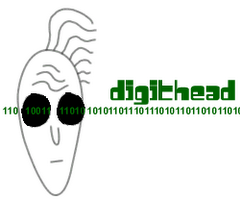The Master Switch: The Rise and Fall of Information Empires was described as "essential reading" by my boss's boss. If you're at all interested in the interplay of technology, economics and politics, I think you'll agree.
Author Tim Wu is the originator of the term "net neutrality" and a law professor at Columbia. He has written a fast-forward history of the information technology industry focusing on the people and corporations that have, over time, controlled the commanding heights of the information economy. The book examines the cartels that held sway over telephone, radio, film, and television leading up to the question of whether the internet will also come to fall under similar domination.
The cycle is the author's term for the progression of any given technology from the wide-open wild-west early days through a process of integration and consolidation to an end state of oligopoly or monopoly. This stasis eventually gets disrupted by newer technology or government intervention, leading to another open phase and a new round of the cycle, empires rising and falling in the process. "The one-time revolutionaries always become the next generation of dictators. That's why we need, in technology, another generation of revolutionaries to upend them."[1]
Open vs. closed systems
The book revolves around the virtues and vices of open and closed systems. Open systems are more adaptable and democratic but have trouble matching the stability, security and efficiency of closed systems. Open systems embrace the advantages of decentralization as espoused in different ways by Friedrich Hayek and Jane Jacobs. But, integrated centralized systems can be reliable and convenient.
Closed systems, of course, appeal to empire builders such as Theodore Vail who created the AT&T Bell System. Wu's knack for sketch biography is put to good use profiling these power-hungry moghuls and the often utopian upstarts that seek to dethrone them. We meet titans, like Vail, and get a glimps into the sometimes contradictory character traits it takes to control an information empire, for example: David Sarnoff, who ruled the Radio Corporation of America (RCA) and NBC; John Reith, founder of the BBC; Adolph Zukor who started Paramount pictures and Ted Turner creator CNN and former head of Time Warner. We also meet hackers like early radio enthusiast Lee De Forest and supressed inventor of FM radio Edwin Armstrong.
The capture of the Internet?
The American system attempts to carefully balance power within the government, but takes a laissez faire approach to private power. If Wu is right and we let things take their natural course, the openness that now characterizes the Internet - the "integrity of the Internet itself as a reliable, independent, and open structure"[2] - may be lost to a period of lockdown. Network effects, the power of integration and economies of scale favor the monopolist. Consumers may decide to favor consistency and convenience over openness and choice only to regret it later. If this is the case, the internet will not remain open automatically but only with concerted effort.
The remedy Wu proposes is a principle of separation akin to the separation of church and state or the separation of powers within the branches of the American government. The common carrier obligation of all infrastructure providers implies net neutrality and opposes verical integration across layers of the network stack. Technology leaders would be expected to self-regulate based on a sense of public duty. The FCC should pursue enforcement with an eye to the special role of information technology in a democratic society. Anti-trust regulation is the back-up, when it's time to bring out the big guns.
Fight on
The Master Switch gives a deeper perspective on the great game playing out in the technology sector. After reading it, you'll recognize the historical themes threading through the open-source movement, the Apple vs Google skirmishes or 2012's battle that defeated the SOPA / PIPA acts. The fight over the future of the Internet is surely not over.











 R Bloggers
R Bloggers